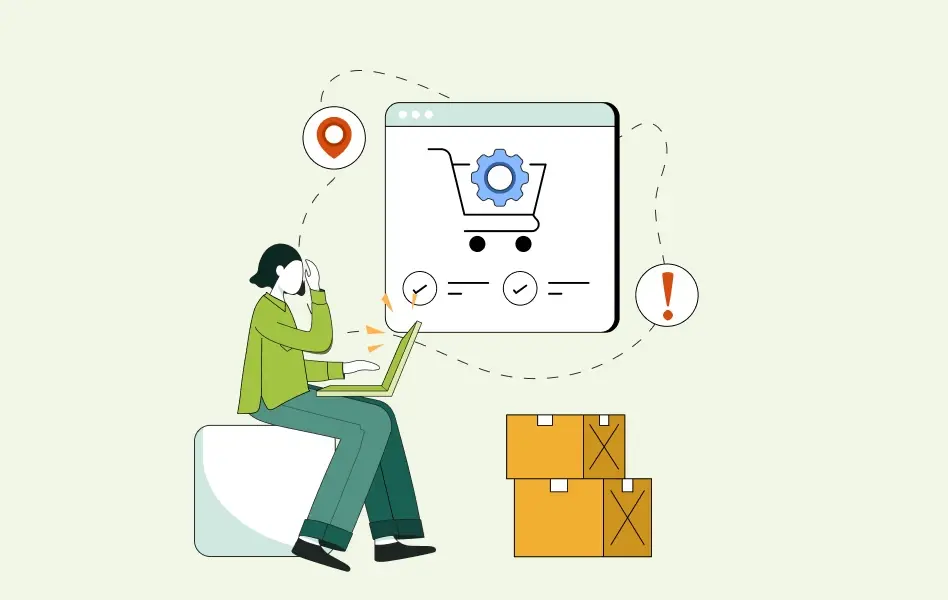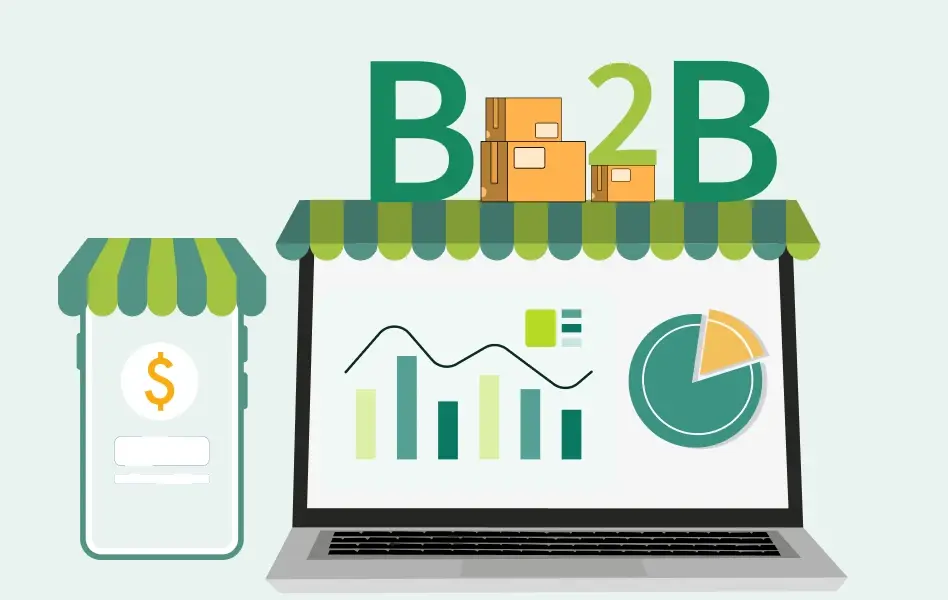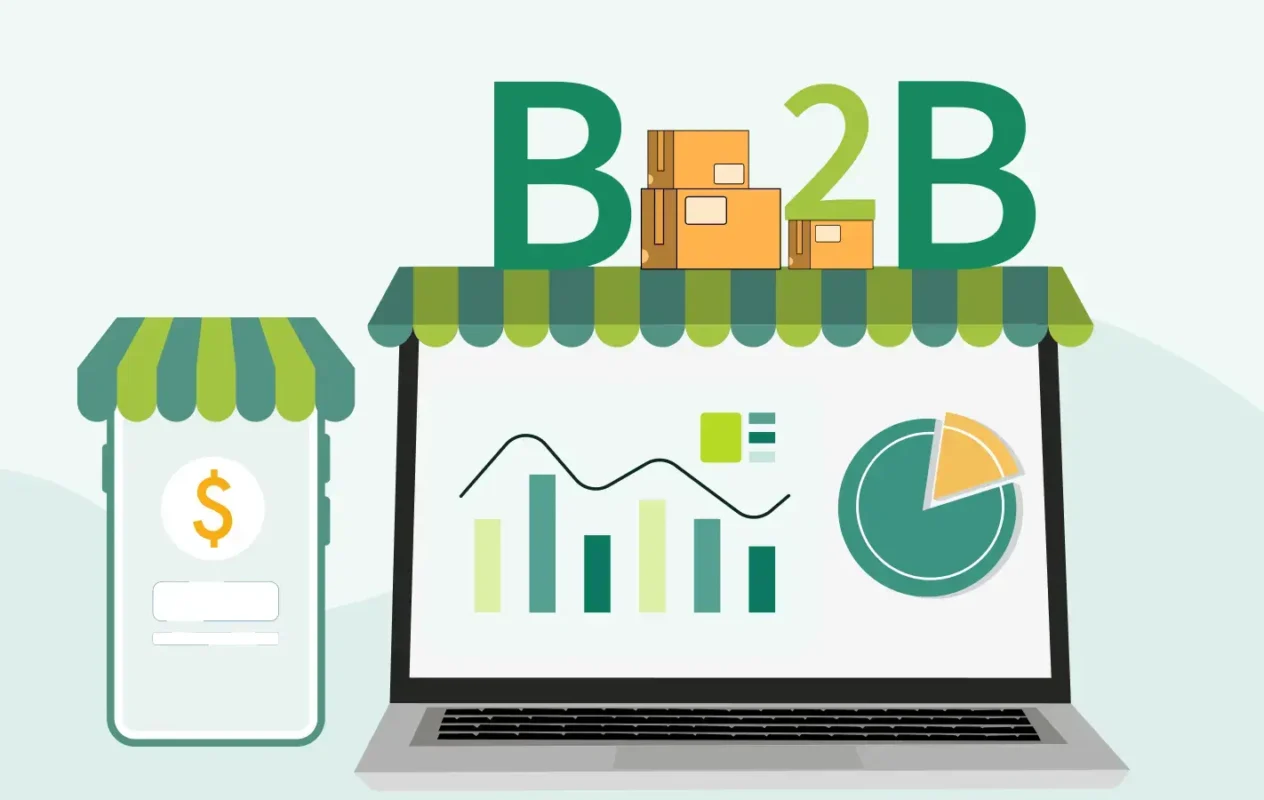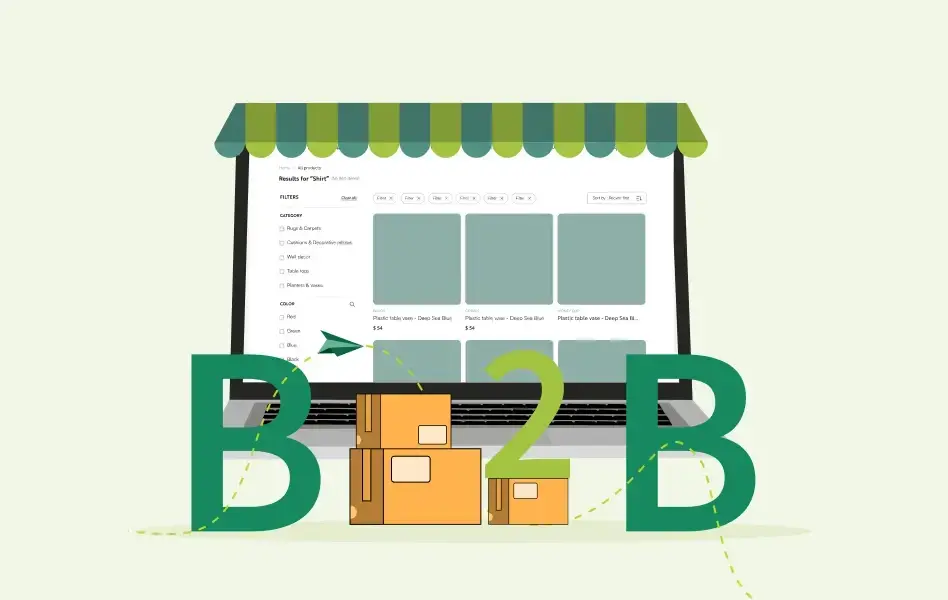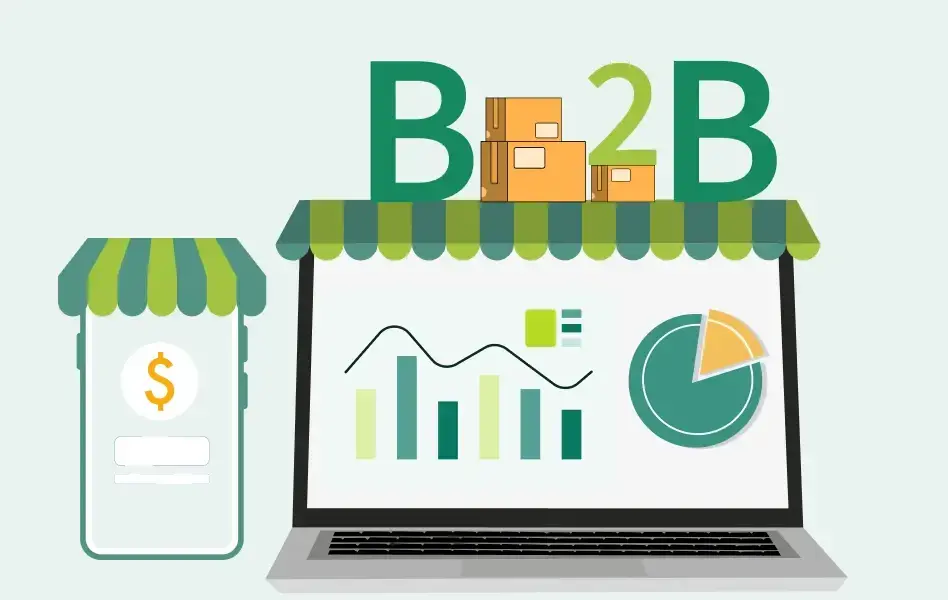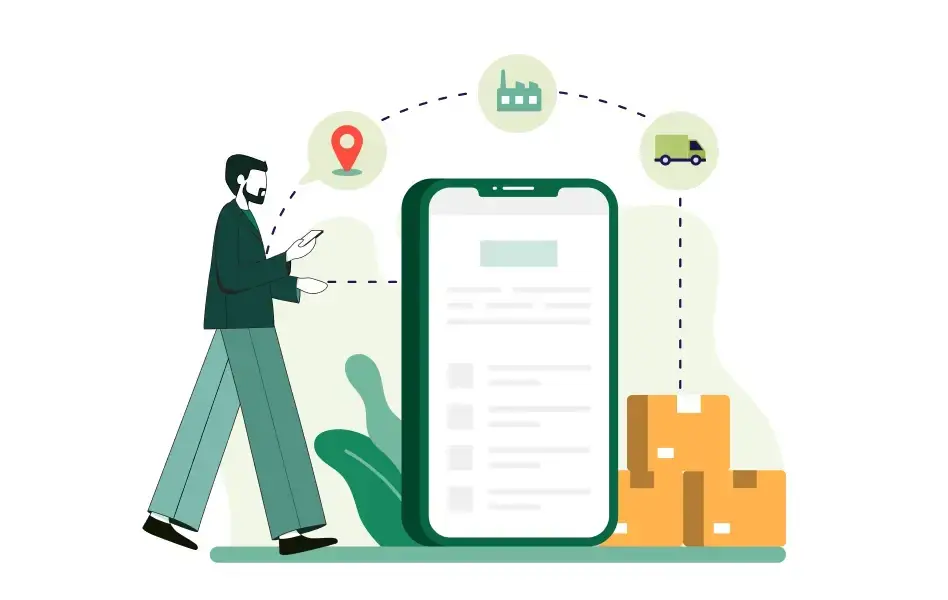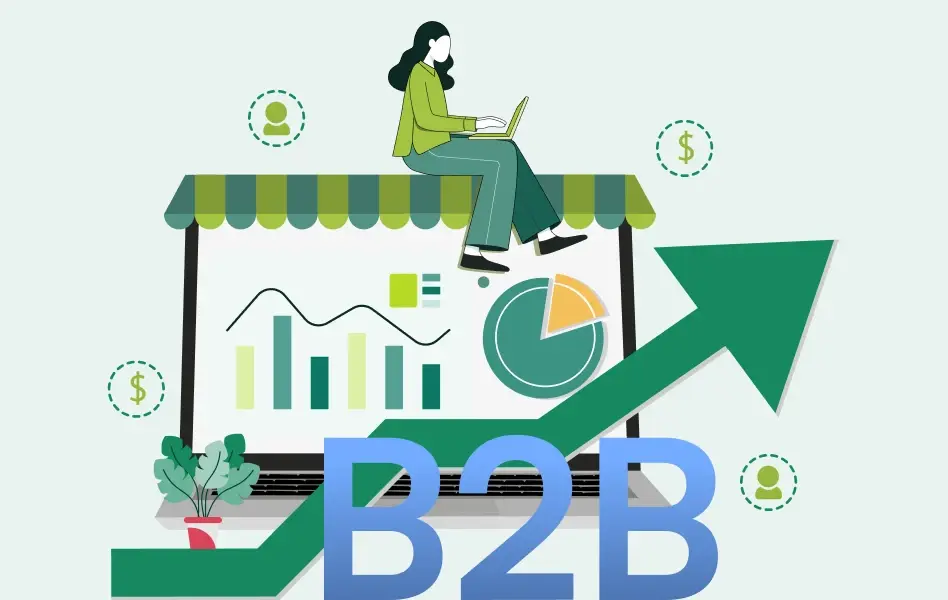Contents
- 1 Key Features of a B2B E-Commerce Solution for Distributors
- 2 Benefits of B2B E-Commerce for Distributors
- 3 Considerations for Choosing a B2B E-Commerce Platform
- 4 Implementation Best Practices
- 4.1 1. Planning and Goal Setting
- 4.2 2. Data Migration and System Integration
- 4.3 3. Training and Onboarding
- 4.4 4. Continuous Monitoring and Optimization
- 4.5 Case Study
- 4.6 Innovation Lightings
- 4.7 Innovation Lighting is a rapidly growing company in the decorative lighting space specializing in items like pendants, chandeliers, and more.
- 4.8 Lessons Learned and Best Practices from Real-World Scenarios
- 5 Conclusion
Welcome to the future of distribution! B2B e-commerce is transforming how distributors operate, making it essential to stay ahead of the curve. With the right e-commerce solutions, distributors can experience unprecedented growth and efficiency. But what makes these platforms so vital, and how can they benefit your business?
B2B e-commerce, or Business-to-Business e-commerce, refers to online transactions conducted between businesses. Unlike (B2C) Business-to-Consumer e-commerce, which focuses on individual customers, B2B e-commerce involves the sale of products or services from one business to another. This can include wholesale distributors, manufacturers, and other business entities that require bulk orders and specialized pricing.
In this guide, we will explore the key aspects of B2B e-commerce solutions built for distributors. We will delve into the essential features, the significant benefits, considerations for choosing the right platform, and best practices for implementation. By the end of this guide, you’ll have a comprehensive understanding of how a robust B2B e-commerce platform can revolutionize your distribution business.
Key Features of a B2B E-Commerce Solution for Distributors
1. Custom Pricing and Discounts
B2B e-commerce platforms allow distributors to customize pricing strategies for different customer segments. This flexibility helps in catering to various business needs and enhances customer satisfaction. Here are the specific advantages:
- Tailor pricing for individual customer segments.
- Offer personalized discounts to drive sales.
- Increase customer loyalty through targeted pricing.
2. Bulk Order Management
Handling large orders efficiently is crucial for distributors. B2B e-commerce solutions streamline the process, reducing errors and ensuring timely deliveries. These solutions provide the following benefits:
- Automate large order processing.
- Reduce manual errors in order handling.
- Ensure timely and accurate delivery of bulk orders.
3. Inventory Management Integration
Integrating with inventory management systems helps distributors keep track of stock levels in real time, preventing overstocking and stockouts. The key benefits include:
- Seamlessly connect with existing inventory systems.
- Monitor stock levels in real time.
- Avoid overstocking and stockouts.
4. Advanced Search and Filtering Options
A robust search and filtering system enhances the customer experience by making it easy to find products quickly and efficiently. This feature offers:
- Provide advanced search capabilities.
- Enable detailed filtering options.
- Help customers find products quickly and easily.
5. Customer Account Management
Managing customer accounts effectively is vital for maintaining strong business relationships. B2B e-commerce platforms offer tools to maintain detailed customer profiles and provide personalized service. The benefits include are:
- Maintain comprehensive customer profiles.
- Offer personalized service based on customer data.
- Manage relationships efficiently.
6. Real-Time Order Tracking
Transparency in order processing is crucial for customer trust. Real-time order tracking allows customers to see the status of their orders at any time. This feature provides:
- Provide real-time updates on order status.
- Enhance transparency in order processing.
- Build customer trust through reliable information.
7. Secure Payment Processing
Secure and efficient payment processing is essential for protecting customer data and ensuring smooth transactions. This capability ensures:
- Ensure secure payment methods.
- Protect customer data during transactions.
- Provide a smooth and efficient payment experience.
8. Analytics and Reporting
Analytics and reporting tools offer valuable insights into business operations, helping distributors make informed decisions and improve efficiency. The advantages include:
- Gain insights through comprehensive analytics.
- Generate detailed reports on various metrics.
- Make data-driven decisions to improve operations.
By implementing these key features, distributors can optimize their B2B e-commerce platforms, enhance customer satisfaction, and drive business growth.
Looking for these key features in a platform that enhances your business growth? Well, look no further; WizCommerce comes equipped with all these features, and moe!Visit now!
Learn more: Efficiency at Every Click: B2B Sales Automation for Time Optimization
Benefits of B2B E-Commerce for Distributors
1. Increased Sales and Reach
A B2B e-commerce platform allows distributors to expand their market reach beyond traditional boundaries, tap into new customer segments, and drive sales growth.
- Reach a wider audience by going online.
- Attract new customers from different regions.
- Boost sales through enhanced visibility and accessibility.
2. Improved Customer Experience
Enhancing the customer experience is crucial for retaining clients and fostering loyalty. B2B e-commerce platforms offer features that make shopping easier and more enjoyable for customers.
- Provide a seamless and intuitive shopping experience.
- Offer real-time order tracking and updates.
- Customize interactions based on customer preferences.
3. Operational Efficiency
Automating routine tasks and streamlining processes can significantly improve operational efficiency. B2B e-commerce platforms help distributors manage their operations more effectively.
- Automate order processing and inventory management.
- Reduce manual errors and save time.
- Improve productivity by streamlining workflows.
4. Better Inventory Management
Effective inventory management is essential for meeting customer demands without overstocking. B2B e-commerce platforms such as WizCommerce provide tools to monitor and manage inventory efficiently.
- Track stock levels in real time.
- Avoid overstocking and stockouts.
- Optimize inventory levels based on demand patterns.
5. Data-Driven Decision Making
Access to detailed analytics and reports enables distributors to make informed decisions. B2B e-commerce platforms offer comprehensive data insights that drive strategic planning and growth.
- Analyze customer behavior and sales trends.
- Generate reports to track performance metrics.
- Make informed decisions based on accurate data.
By leveraging the benefits of B2B e-commerce, distributors can enhance their operations, improve customer satisfaction, and achieve sustainable growth in the digital marketplace.
Learn More:.Essential Guide to Data-Driven Retail Strategies in Wholesale Business
Considerations for Choosing a B2B E-Commerce Platform
When selecting a B2B e-commerce platform, it’s essential to choose one that can grow with your business, integrate seamlessly with existing systems, provide a great user experience, ensure security, and offer strong support and training.
Pro tip: WizCommerce integrates these features, making it an ideal choice for businesses looking to enhance their online operations. Here’s a closer look at the key considerations:
1. Scalability and Flexibility
When selecting a B2B e-commerce platform, it’s essential to consider whether it can grow with your business. Scalability ensures that the platform can handle increased traffic and transactions as your business expands. Flexibility allows for customization to meet your specific business needs.
- Ensure the platform can handle growth in traffic and transactions.
- Look for customizable features that can adapt to your unique requirements.
- Check if the platform supports various business models and product types.
2. Integration with Existing Systems (ERP, CRM, Inventory)
A robust B2B e-commerce platform should seamlessly integrate with your existing systems, such as(ERP) Enterprise Resource Planning, (CRM) Customer Relationship Management), and inventory management. This integration is crucial for maintaining efficient operations and a unified data flow across your business.
- Verify compatibility with your current ERP, CRM, and inventory systems.
- Ensure seamless data synchronization across all platforms.
- Avoid disruptions in workflow by choosing a platform that integrates smoothly with your existing technology stack.
3. User Experience and Interface
The user experience and interface of your B2B e-commerce platform play a significant role in customer satisfaction. A user-friendly and intuitive interface can make the shopping process easier for your customers and encourage repeat business.
- Choose a platform with an intuitive and easy-to-navigate interface.
- Ensure the user experience is seamless and engaging.
- Look for features that enhance customer interactions, such as personalized recommendations and quick access to order history.
4. Security Features
Security is paramount in any e-commerce operation. Ensuring that your B2B e-commerce platform has robust security measures in place will protect sensitive customer data and build trust with your clients.
- Check for advanced security features like SSL certificates and encryption.
- Ensure compliance with data protection regulations such as GDPR.
- Look for features that protect against fraud and data breaches.
5. Support and Training
Access to reliable support and comprehensive training resources is vital for successfully implementing and maintaining your B2B e-commerce platform. Good support ensures that any issues are quickly resolved, while training helps your team utilize the platform effectively.
- Look for platforms that offer 24/7 customer support.
- Ensure extensive training resources, including tutorials, webinars, and documentation.
- Consider the availability of dedicated support personnel for your account.
By carefully considering these factors, you can choose a B2B e-commerce platform that not only meets your current needs but also supports your business’s growth and evolution in the future.
To learn more about how to choose a B2B e-commerce platform, read 5 Tips For Choosing a Stable and Reliable B2B Commerce Platform
Implementation Best Practices
When integrating key features into your B2B e-commerce platform, consider the following best practices:
1. Planning and Goal Setting
Effective implementation of a B2B e-commerce platform starts with thorough planning and clear goal setting. This ensures that everyone involved understands the project’s objectives and the steps needed to achieve them.
- Define Clear Objectives: Outline what you aim to achieve with your e-commerce platform, such as increasing sales, improving customer experience, or streamlining operations.
- Set Measurable Goals: Establish specific, measurable, achievable, relevant, and time-bound (SMART) goals to track progress.
- Develop a Detailed Plan: Create a step-by-step implementation plan, including timelines, resources needed, and key milestones.
2. Data Migration and System Integration
Seamlessly migrating your existing data and integrating new systems are critical steps in the implementation process. Proper handling of data and system integration ensures continuity and accuracy.
- Prepare Your Data: Clean and organize your data before migration to avoid errors and duplication.
- Choose the Right Tools: Use reliable data migration tools and software to facilitate a smooth transition.
- Test Integrations Thoroughly: Conduct comprehensive testing of system integrations to ensure they work seamlessly with your existing ERP, CRM, and inventory management systems.
3. Training and Onboarding
Training your staff and ensuring they are comfortable with the new system is crucial for a successful implementation. Well-trained employees can maximize the platform’s potential and ensure smooth operations.
- Develop a Training Program: Create a detailed training program that covers all aspects of the new platform.
- Offer Hands-On Training: Provide practical, hands-on training sessions to help staff become familiar with the platform.
- Continuous Support: Establish ongoing support and resources, such as helpdesks, tutorials, and documentation, to assist staff as they navigate the new system.
4. Continuous Monitoring and Optimization
Implementation doesn’t end once the platform is live. Continuous monitoring and optimization are necessary to ensure the platform operates efficiently and meets your business goals.
- Monitor Performance: Regularly check the performance of the platform, including load times, user experience, and transaction accuracy.
- Collect Feedback: Gather feedback from users and customers to identify areas for improvement.
- Implement Improvements: Use insights from performance monitoring and feedback to make continuous improvements to the platform.
- Stay Updated: Stay current with your e-commerce platform’s latest updates and features to take advantage of new functionalities and improvements.
By following these best practices, you can ensure a smooth and successful implementation of your B2B e-commerce platform, setting your business up for long-term success.
Case Study
Finally, to see these concepts in action, let’s look at some case studies and their significant impact on sales efficiency.
Innovation Lightings
Innovation Lighting is a rapidly growing company in the decorative lighting space specializing in items like pendants, chandeliers, and more.
Problem:
Innovation Lighting was burdened with a manual system to manage their daily sales activities. They tested multiple solutions, including Ecat and Repzi, but none met their specific needs. They needed a tool that could help their sales reps place orders and display at least 50 out of their 100 products effectively. None of the other software solutions, except WizCommerce, could handle this requirement.
Solution:
. WizCommerce stepped in to streamline their process by offering real-time management capabilities. By integrating sample data from Innovations Lighting, WizCommerce cut down their sales operation time by 50%.
Impact:
- Time Savings: Sales operations time was slashed by 50%, allowing for quicker data displays and more efficient customer engagement.
- Increased Productivity: Automating the proposal process freed up more time for strategic tasks.
- Enhanced Efficiency: The system sorted recommended products based on availability (in-stock and out-of-stock), making the sales reps’ work more effective and effortless.
Jeff Goldfarb notes, “The WizCommerce team has been spectacular. What was incredibly impressive was their willingness to make changes rapidly. They made things work in record time.” Watch the full testimonial here.
Lessons Learned and Best Practices from Real-World Scenarios
- Centralized Data Management:
Centralizing product information, images, and pricing in a single database significantly reduces errors and improves efficiency. This practice ensures that all team members have access to the same accurate and up-to-date information. - Real-Time Analytics:
Utilizing real-time analytics to track customer engagement provides valuable insights into customer behavior. This allows for more targeted and effective marketing strategies and better-informed business decisions. - Automation of Routine Tasks:
Automating routine tasks such as generating quotations and following up with customers frees up valuable time for sales teams to focus on more strategic activities. This not only improves productivity but also enhances the overall customer experience. - Preparation for Trade Shows:
Implementing tools that streamline follow-ups and customer interactions during trade shows can drastically increase the number of leads converted. Efficient follow-up processes ensure that no opportunities are missed and enhance the effectiveness of sales efforts during these crucial events. - Focus on Strategic Tasks:
By reducing the time spent on operational tasks, sales teams can allocate more time to strategic planning and customer relationship management. This shift in focus can lead to better business outcomes and stronger customer relationships.
These case studies highlight the transformative impact of effective B2B e-commerce implementations. By centralizing data, utilizing real-time analytics, automating routine tasks, and focusing on strategic activities, companies can significantly improve their sales efficiency and customer engagement.
Conclusion
Embracing a robust B2B e-commerce solution is no longer optional for distributors—it’s a necessity. The benefits, from increased sales and operational efficiency to improved customer experiences, are too significant to ignore. Start your journey towards a more efficient and profitable future by adopting the right e-commerce platform today.
After understanding the significance of B2B e-commerce solutions and their benefits, it’s time to take actionable steps:
- Assess Your Current System: Evaluate your existing e-commerce and distribution systems to identify gaps and areas for improvement.
- Explore WizCommerce Features: Discover how WizCommerce’s AI-powered platform can address your specific business needs with features like 24/7 online storefronts and automated order processing.
- Plan Your Implementation with Us: Work with WizCommerce experts to develop a detailed implementation plan, including timelines, resources, and staff training.
- Book a Demo: Schedule a demo with WizCommerce to see firsthand how our platform can transform your business operations.
- Start Your Transformation: Begin the transition to WizCommerce’s robust B2B e-commerce platform, ensuring continuous monitoring and optimization for the best results.
Stay competitive by adopting the latest technology with WizCommerce. It’s time to improve how you do business.
. Ready to transform your distribution business with WizCommerce? Book a demo today and see how our innovative solutions can drive your business forward



















